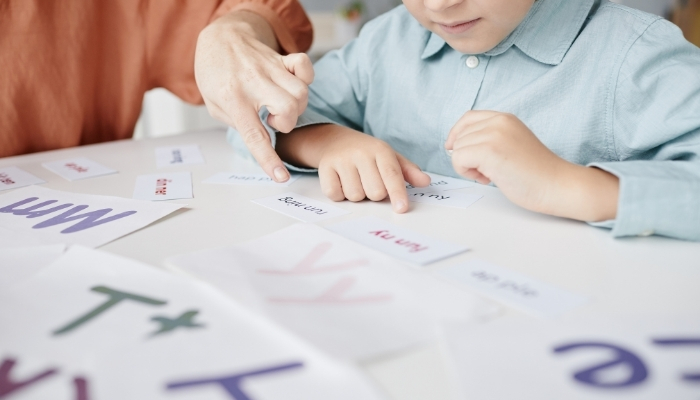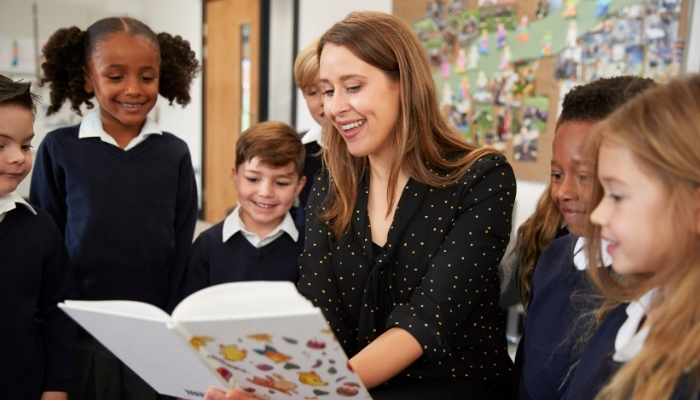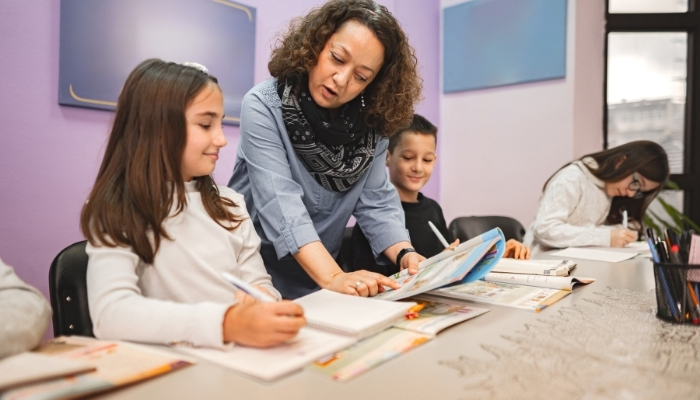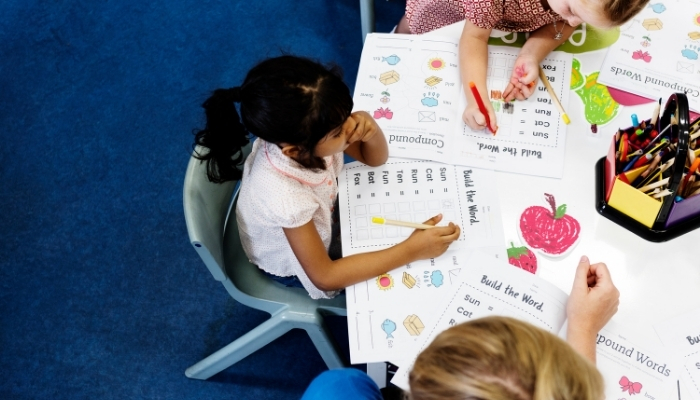Latest data from the 2025 NAPLAN assessments show that about 1 in 10 Australian students are at the ‘Needs additional support’ level, struggling to reach minimum proficiency standards. This gap can widen as children progress through school, affecting their confidence and limiting future opportunities.
It’s understandable to feel worried if your child shows early signs of difficulty. However, the good news is that strong foundational literacy and numeracy skills can help prevent these struggles from escalating. With consistent support, targeted activities, and structured programs, you can help your child build the core skills they need to succeed.
In this blog, we will explore the importance of foundational literacy and numeracy, what these skills involve, how to identify gaps early, and practical ways you can support your child’s learning journey.
Key Takeaways
-
Foundational literacy and numeracy skills give children the confidence to understand new concepts and complete tasks independently.
-
Early detection of struggles in reading, writing, or math prevents gaps from growing and supports steady progress.
-
Daily practice and simple, purposeful activities at home and school build strong core skills.
-
Using interactive tools and adaptive learning helps children practice concepts at their own pace, allowing them to progress at a rate that suits them.
-
Small-group or focused instruction allows children to get attention where they need it most and track their progress.
Understanding Foundational Literacy and Numeracy Skills

Foundational literacy and numeracy skills are the fundamental abilities every child needs before they can tackle advanced learning. Think of them as the building blocks that support everything else your child learns in school. Core abilities develop during the early years and continue growing throughout primary school.
Literacy skills help children understand and use language effectively. They learn to decode words, understand meanings, and express their thoughts clearly. Numeracy skills help children understand numbers, patterns, and mathematical relationships. Together, both skill sets create a strong foundation for all academic subjects.
Children who master fundamentals early find learning easier and more enjoyable. They can focus on new concepts instead of struggling with basic abilities. This confidence creates a positive learning cycle that continues throughout their education.
Core Components of Foundational Literacy
Here are the key building blocks that make up strong literacy skills:
-
Reading skills: Recognizing letters, understanding sounds, and connecting them to create words.
-
Writing abilities: Forming letters correctly, spelling words, and organizing thoughts on paper.
-
Comprehension skills: Understanding what they read and making connections to their own experiences.
-
Phonemic awareness: Hearing and working with individual sounds in spoken words.
-
Fluency development: Reading smoothly and with appropriate speed and expression.
-
Grammar knowledge: Understanding how sentences work and using proper language structure.
-
Vocabulary building: Learning new words and understanding their meanings in different contexts.
Core Components of Foundational Numeracy
These mathematical building blocks help children understand numbers and solve problems:
-
Number recognition: Identifying numbers and understanding their values and relationships.
-
Basic operations: Adding, subtracting, multiplying, and dividing with confidence.
-
Counting skills: Understanding number sequences and developing a sense of numbers.
-
Shape recognition: Identifying geometric shapes and understanding their properties.
-
Pattern awareness: Recognizing and creating patterns using numbers, colors, or shapes.
-
Spatial reasoning: Understanding how objects relate to each other in space.
-
Measurement concepts: Comparing sizes, weights, and distances using standard units.
All foundational components work together to create confident learners. When children master basics, they're ready to tackle more complex academic challenges with ease.
Also Read: How to Encourage Reading in Kids: Tips, Books, and Expert Guidance
The Importance of Foundational Literacy and Numeracy Skills

Struggling with reading or simple math can make school feel frustrating for children. Foundational literacy and numeracy skills determine how easily they navigate learning and grow confident in tackling new challenges. Understanding their importance helps you recognize why early support is crucial for your child’s success.
Here’s why core abilities matter so much for your child’s development:
-
Academic success: Strong foundations lay the groundwork for learning new concepts, making them easier and more enjoyable.
-
Confidence building: Children feel capable and willing to take on challenging tasks.
-
Problem-solving abilities: Good numeracy skills help children think logically and solve everyday problems.
-
Communication skills: Literacy abilities help children express themselves clearly and understand others.
-
Independence: Children can read instructions, understand assignments, and work more independently.
-
Future opportunities: Strong basic skills open doors to advanced learning and career options.
-
Life skills: These abilities facilitate daily tasks, such as managing finances and interpreting information.
Now that you have seen why these skills matter, it becomes easier for you to recognize when your child is struggling. Catching early signs will help you act before small gaps turn into bigger hurdles.
How Can You Spot Weak Foundational Skills?
You know your child best, and you're often the first to notice when something isn't quite right. Recognizing early signs of weak foundational skills helps you get support before problems become bigger. Many signs might show up during daily activities at home and school.
Look for these common indicators that suggest your child needs extra support:
Reading and Writing Difficulties
-
Struggles to sound out simple words that other children their age can read.
-
Avoids books or reading activities, claiming they're "boring" or "too hard".
-
Has trouble understanding story plots or remembering what they just read.
-
Writes letters backwards or has difficulty forming letters clearly.
-
Misspells common words even after practicing them multiple times.
-
Takes much longer than peers to complete reading or writing tasks.
Math and Number Challenges
-
Counts on fingers for simple addition problems beyond first grade.
-
Has difficulty recognizing number patterns or understanding basic math concepts.
-
Struggles with telling time or understanding money values.
-
Cannot accurately estimate quantities or compare sizes.
-
Gets confused when solving word problems, even when they know the story.
-
Shows anxiety or frustration when faced with any math-related activity.
General Learning Signs
-
Has trouble following multi-step instructions or remembering sequences.
-
Shows inconsistent performance, performing well on some days and struggling on others.
-
Loses confidence in their abilities and starts saying, "I'm not good at this."
-
Takes longer than usual to complete homework or gives up easily.
-
They have difficulty organizing their thoughts or explaining their reasoning.
Teachers often notice warning signs during classroom activities. They might mention concerns about your child's progress during parent conferences. Moreover, observations, combined with your home experiences, create a clear picture of where your child needs support.
How Can Teachers and Parents Help Build Foundational Skills?

You play a key role in helping your child develop strong literacy and numeracy skills, and so does your child’s teacher. When you work together with consistent approaches, your child experiences learning in a supportive and encouraging environment. This consistency helps them take risks, try new things, and learn from mistakes without fear of failure.
Below are some practical strategies that parents and teachers can use to help their child build foundational skills.
What Parents Can Do at Home
Your home provides countless opportunities to strengthen your child's foundational skills naturally. You don't need special training or expensive materials to make a difference. Simple daily activities become powerful learning moments when you approach them with intention.
-
Read together daily: Make reading a fun part of your routine, not a chore your child dreads.
-
Talk about stories: Ask questions about characters and events to build comprehension skills.
-
Practice writing: Encourage your child to write grocery lists, thank you notes, or short stories
-
Use math in daily life: Count items while shopping, measure ingredients while cooking, or sort objects by size.
-
Play word games: Scrabble, rhyming games, and spelling challenges make learning a fun and engaging experience.
-
Create a quiet study space: Designate a dedicated area for your child's homework and reading.
-
Limit screen time: Balance technology use with hands-on learning activities.
-
Be patient with mistakes: Focus on effort rather than perfect results to build confidence.
What Teachers Can Do in the Classroom
Teachers have professional training and classroom resources that create structured learning opportunities. They can identify specific areas where your child needs support and adapt their teaching methods accordingly. Good teachers also communicate regularly with parents about their child's progress and any challenges they may be facing.
Practical classroom strategies include:
-
Small group instruction: Working with children at similar skill levels for targeted support.
-
Hands-on activities: Using manipulatives, games, and interactive materials to make abstract concepts concrete.
-
Regular assessment: Monitoring progress to adjust teaching methods and identify students who need extra help.
-
Differentiated instruction: Adapting lessons to meet different learning styles and ability levels.
-
Positive reinforcement: Celebrating progress and effort to build student confidence.
-
Cross-curricular connections: Showing how literacy and numeracy skills apply across all subjects.
-
Parent communication: Keeping families informed about classroom learning and suggesting home support activities.
-
Professional development: Staying current with research-based teaching methods and best practices.
When parents and teachers work together, children receive consistent messages about the importance of learning. However, even with the right strategies, obstacles still arise. Seeing what might block progress can help you find practical ways to keep learning and moving forward.
Also Read: Effective Reading Comprehension Strategies for Kindergarten Students
How to Address Difficulties in Building Foundational Skills

Even with the best intentions, building foundational skills comes with real challenges. You might feel overwhelmed by your child's needs or unsure about the right approach. However, struggles are a daily occurrence, and most families face similar obstacles during their child's learning journey.
Many issues have practical solutions that don't require significant changes to your family routine. Let’s learn more about the challenges and equip yourself with their solution.
Limited Time for Practice
Modern family life moves quickly, leaving little time for focused skill-building activities. You juggle work, household responsibilities, and your child's various activities. Finding time for reading practice or math games often feels impossible.
Solutions that work for busy families:
-
Combine learning with daily activities, such as cooking or shopping.
-
Use car rides for counting games or spelling practice.
-
Read bedtime stories that double as literacy practice.
-
Set aside just 15 minutes daily for focused skill practice.
-
Choose quality over quantity - short, regular sessions are more effective than long, infrequent ones.
Lack of Resources and Materials
You want to help but don't know what materials to buy or activities to try. Educational stores can be expensive, and online options feel overwhelming. Many families worry they can't afford proper learning materials.
Budget-friendly resource solutions:
-
Visit your local library for free books, games, and educational programs.
-
Use household items for math practice, such as counting coins, measuring with measuring cups, or sorting buttons.
-
Discover free educational websites and apps tailored to your child's age level.
-
Join parent groups to share resources and activity ideas.
-
Make simple learning games using paper, pencils, and creativity.
Child Resistance and Frustration
Your child might resist practice activities or become frustrated when tasks feel difficult. This creates tension at home and makes learning feel like a chore rather than a fun activity. Some children shut down completely when faced with challenging material.
Strategies to reduce resistance:
-
Start with activities your child enjoys and gradually introduce new challenges.
-
Break tasks into smaller, manageable pieces that build confidence.
-
Celebrate small victories and focus on effort rather than perfect results.
-
Let your child choose between different activity options to give them some control over their experience.
-
Take breaks when frustration builds and return to activities when emotions calm down.
Inconsistent Progress
Some days, your child seems to understand everything perfectly, while on other days, they struggle with basic concepts. This inconsistency makes it difficult to determine if your approach is effective. You might wonder if your child has learning difficulties or if you're not doing enough.
Understanding and managing inconsistent progress:
-
Recognize that learning happens in cycles, with periods of growth and consolidation.
-
Track progress over weeks and months rather than day-to-day performance.
-
Consider factors such as tiredness, hunger, or stress that can affect learning.
-
Maintain consistent practice routines even when progress seems slow.
-
Consult with teachers or learning specialists if concerns persist over several months.
Problems don't mean you're failing as a parent or that your child can't succeed. Every family faces obstacles in their learning journey. That said, the difference lies in recognizing challenges early and finding practical solutions that work for your unique situation.
Also Read: Kindergarten Reading Level Guide and Tips
How Can You Use Technology to Help Your Child Build Foundational Skills?

Technology can make learning literacy and numeracy more engaging and less stressful for children. The right apps turn practice into interactive, motivating activities while reinforcing real-world skills like reading and problem-solving.
Here are some practical ways you can use technology:
-
Create interactive practice sessions by choosing tools that make reading and math engaging. For example, platforms like FunFox provide live sessions that build strong literacy foundations.
-
Set up adaptive exercises that adjust to your child’s skill level, so they feel challenged without being overwhelmed.
-
Utilize visual and audio tools, such as stories with narration or animated lessons, to support a range of learning styles.
-
Track your child’s progress through dashboards or reports, and use the insights to focus on areas that need improvement.
-
Enable accessibility features like text-to-speech or adjustable fonts if your child benefits from extra support.
-
Motivate through rewards by encouraging your child to complete levels, earn badges, or unlock achievements.
When technology is combined with supportive interaction at home, it becomes a powerful tool that helps children build skills and stay curious. Although tech can only help at home, broader support comes from schools and policies. Knowing what programs exist will empower you with ways to strengthen your child’s learning opportunities.
National Programs Strengthening Early Learning in Australia
Many parents wonder what kind of support is available to help their child develop strong literacy and numeracy skills. Fortunately, Australian education policies recognize how important these skills are and have created programs to give every child the best possible start. These policies shape classroom teaching, learning resources, and the extra help schools offer when students need it.
One of the ways progress is tracked is through the National Assessment Program – Literacy and Numeracy (NAPLAN). From 2023, NAPLAN introduced four proficiency standards that provide clearer information about how your child is performing and where they may need additional support.
Here are some key initiatives that back foundational learning in Australia:
-
Skills for Education and Employment Program: Over the next four years, $436.4 million will be invested to support learners who require additional assistance in enhancing their literacy and numeracy skills.
-
Early Years Learning Framework: This framework provides educators with guidelines on how to encourage learning from birth, helping children develop language and number skills from the outset.
-
Australian Curriculum: It sets out what children should be learning at each year level, ensuring consistent expectations and helping teachers tailor their support where needed.
-
Closing the Gap initiatives: These programs aim to reduce educational disparities and ensure that all children, regardless of their background, have equal opportunities to thrive.
Policies like these establish the framework for how schools teach and support students. They also provide funding for tools, resources, and programs that can make a real difference in your child’s learning. Knowing about these initiatives helps you understand what’s available and how to advocate for the support your child may need.
Also Read: Understanding NAPLAN: Australia Wide Insights
How Does FunFox Help Parents Build Foundational Skills?

Strong foundational literacy skills form the cornerstone of your child's entire educational journey. When children master reading and writing early, they unlock the potential in every other subject and build confidence that lasts throughout their school years. That's precisely where FunFox Program makes a real difference for families.
FunFox recognizes that foundational skills require focused attention during the primary school years. Our small-group approach means your child gets personalized support that adapts to their learning pace. Unlike large classroom settings, our teachers can identify exactly where your child excels and where they need extra practice.
The FunFox Program offers targeted support through two specialized clubs:
-
Writers Club (Grades 1-7): Builds writing confidence through creative activities that make grammar, spelling, and composition engaging.
-
Readers Club (Grades 3-8): Develops reading fluency and comprehension skills that help children understand any text they encounter.
-
Small group classes: With a maximum of 6 students per class, this ensures personalized attention for every child.
-
Trained teachers: Our educators are well-trained and know how to make learning an enjoyable experience.
-
Interactive lessons: Children participate actively rather than sitting passively through lectures.
-
Progress tracking: Regular feedback helps you see exactly how your child is improving.
-
Free bonus programs: NAPLAN and Selective School preparation help your child excel in critical assessments.
Our approach recognizes that every child learns differently and at their own pace. We create supportive environments where children feel safe to make mistakes, ask questions, and celebrate their progress.
Conclusion
Foundational literacy and numeracy skills influence every part of your child’s learning journey, from understanding instructions to solving everyday problems. When these skills are nurtured early, children gain confidence, independence, and the ability to tackle challenges with ease.
FunFox offers small-group classes, trained teachers, and interactive lessons tailored to meet each child at their individual level. Focused support through the Writers Club and Readers Club will help your child to strengthen their skills, enjoy learning, and approach new challenges confidently.
Book a trial class today with FunFox and support your child’s growth indefinitely.
FAQ’s
1. What is the importance of literacy and numeracy in learning?
Literacy and numeracy give children the ability to understand concepts, follow instructions, solve problems, and communicate effectively. These skills create a base for learning across all subjects and real-life situations.
2. What are the five pillars of FLN?
The five pillars of foundational literacy and numeracy include phonemic awareness, reading fluency, comprehension, vocabulary, and basic mathematical skills. Together, they support children in mastering essential early learning abilities.
3. What is the importance of numeracy in everyday life?
Numeracy helps children manage daily tasks, such as counting money, measuring ingredients, and understanding time. Strong number sense builds logical thinking, problem-solving abilities, and confidence in handling practical situations.
4. How to improve foundational literacy skills?
Parents and teachers can improve literacy skills by reading daily, practicing writing, discussing stories, engaging in word games, and providing opportunities to apply reading and writing in everyday activities.
5. What is the purpose of assessment in FLN?
Assessment identifies children’s strengths and weaknesses, tracks progress, and guides targeted instruction. It ensures timely support, informs teaching strategies, and helps children achieve steady improvement in literacy and numeracy.















